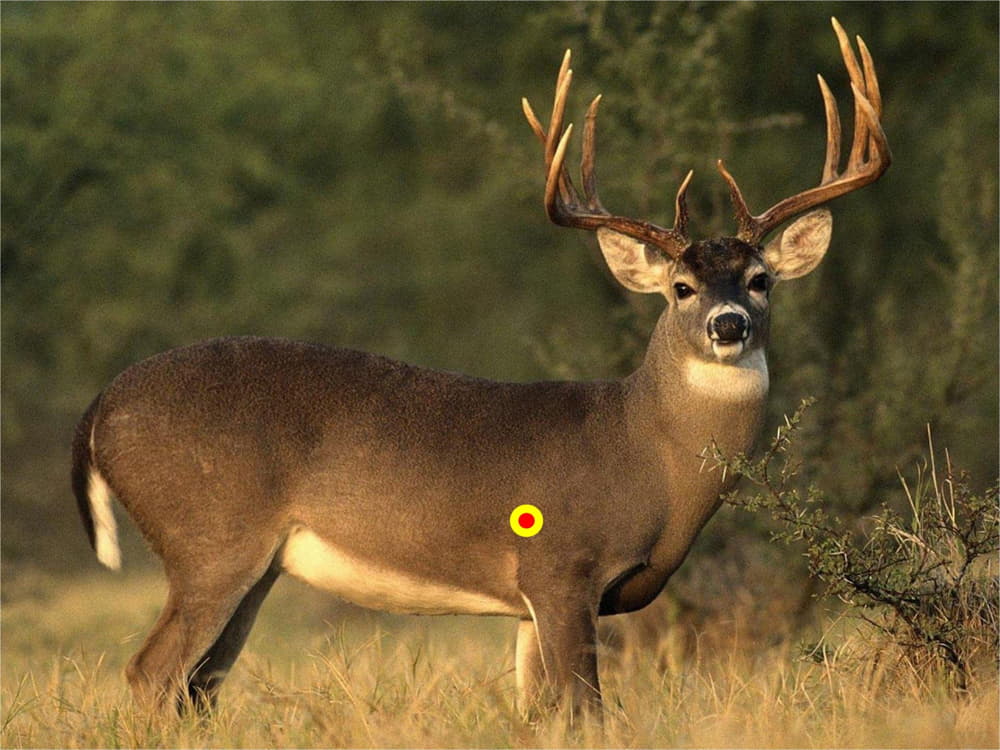Have you ever wondered what happens if you shoot a deer out of season? Is it just a harmless act or are there serious consequences involved?
Shooting deer outside of the permitted season can have major legal and environmental ramifications. Hunting seasons are set in place to control the harvest of wildlife populations. This ensures their long-term viability and the balance of ecosystems.
Additionally, you will understand deeper about the significance of responsible hunting practices. Their role in promoting conservation and preserving habitat health is integral. Responsible hunting practices involve adhering to established seasons and regulations.
In this article, we will delve into the topic of killing a deer out of season. Then we will understand about the legal, ethical, and ecological implications that come with such an action. From potential fines and penalties to long-term effects on wildlife populations. Let’s unravel the aftermath of disregarding hunting regulations.
What Happens If You Shoot A Deer Out Of Season?
There may be serious legal and environmental repercussions if deer are shot outside of the regular hunting season. You are breaking hunting laws if you shoot a deer outside of the prescribed season. Furthermore, you may be contributing to the extinction of a species or altering its natural population dynamics.
Legal Consequences
Shooting a deer outside of the designated hunting season is a violation of hunting regulations, and the legal ramifications can be severe. Individuals who engage in such activities may risk significant fines if detected. They will also lose their hunting privileges, have their licenses suspended, and face criminal prosecution. This is determined by the jurisdiction and the circumstances of the offense.
Poachers who kill deer in the days or weeks before hunting season, or who use artificial lighting to kill deer, will face a larger fine. Out-of-season hunting sanctions are in place to deter unlawful activity and ensure the viability of animal populations. Regulatory authorities work hard to enforce these laws. They are constantly striving to strike a balance between hunting ability and conservation initiatives.

Ethical Considerations
Beyond the legal consequences, shooting an unseasonal deer raises ethical concerns. Hunting regulations exist not only to protect wildlife but also to foster fair chase and ethical hunting practices. Hunting during the designated seasons allows for a level playing field. This ensures the animals have a fair chance of survival.
By disregarding hunting seasons, individuals undermine the principles of ethical hunting and sportsmanship. It promotes an unfair advantage over the animal. This can lead to unnecessary suffering and disruption in the natural balance of ecosystems.
Impact On Wildlife Populations
The consequences of hunting unseasonable deer extend beyond immediate legal and ethical implications. Unregulated hunting activities disrupt the management strategies designed to maintain healthy wildlife populations. Hunters that harvest animals outside of hunting seasons may unintentionally disrupt the delicate balance between predator and prey.
When hunting occurs during specific times of the year, it aligns with the behavior and life cycles of the animals. For example, hunting during fall helps control deer populations before winter, reducing food competition and preventing overbrowsing.
Shooting a deer outside of this established timeframe can disrupt these natural processes. As a result, the ecosystem becomes unbalanced, harming not only deer but also other animals that rely on them for existence.
Why Are Hunting Seasons Important?
Hunting seasons are specific periods set by regulatory authorities. Hunters are legally permitted to pursue and harvest game animals like deer in hunting seasons. One of the main reasons hunting seasons are important is that they serve to keep natural populations healthy and stable.
Hunting seasons are also crucial in disease management in wildlife populations. Hunters will harvest sick or diseased animals. This helps to prevent the spread of disease to other animals.
This is especially true in the fall, when hunting is at its peak. Most wildlife managers’ primary purpose is to keep the population viable. Female deer lay their eggs all winter and spring. The bulk of them give birth in the early summer. During the fall, a hunter only kills one female deer. They are unable to survive on their own in the spring.
Typically, hunting seasons are determined based on factors such as mating patterns, migration routes, and the need to control animal populations. They vary from region to region. It is crucial for hunters to familiarize themselves with the specific dates and regulations governing their area.
Where Do Deer Go In The Off Season?
Deer endure a variety of behavioral and physiological changes during the off season in order to adjust to their changing environment. While their exact location varies depending on region and ecology, there are general patterns that can be observed.
During the off season, which is typically winter, deer tend to migrate to areas with more suitable resources for survival. They seek out protected areas that offer shelter from extreme weather conditions.
Deer also alter their diet during the off season. In regions where snowfall is significant, their food sources become scarce. Deer migrate from grazing on grasses and plants to browsing on twigs, buds, and bark from trees and shrubs to survive.
Additionally, deer may form small groups or herds during the off season. Because the collective warmth generated by a group helps them withstand the cold. This social behavior also aids in detecting predators and sharing available food resources.
In summary, during the off season, deer tend to retreat to safe regions with plenty of cover and food.
Conclusion
In conclusion, hunting deer outside of the permitted season is unethical and unlawful. Responsible hunters respect hunting seasons and adhere to established guidelines. This ensures the long-term sustainability of wildlife populations. We contribute to animal protection and promote responsible outdoor activities by obeying the rules and hunting ethically.

